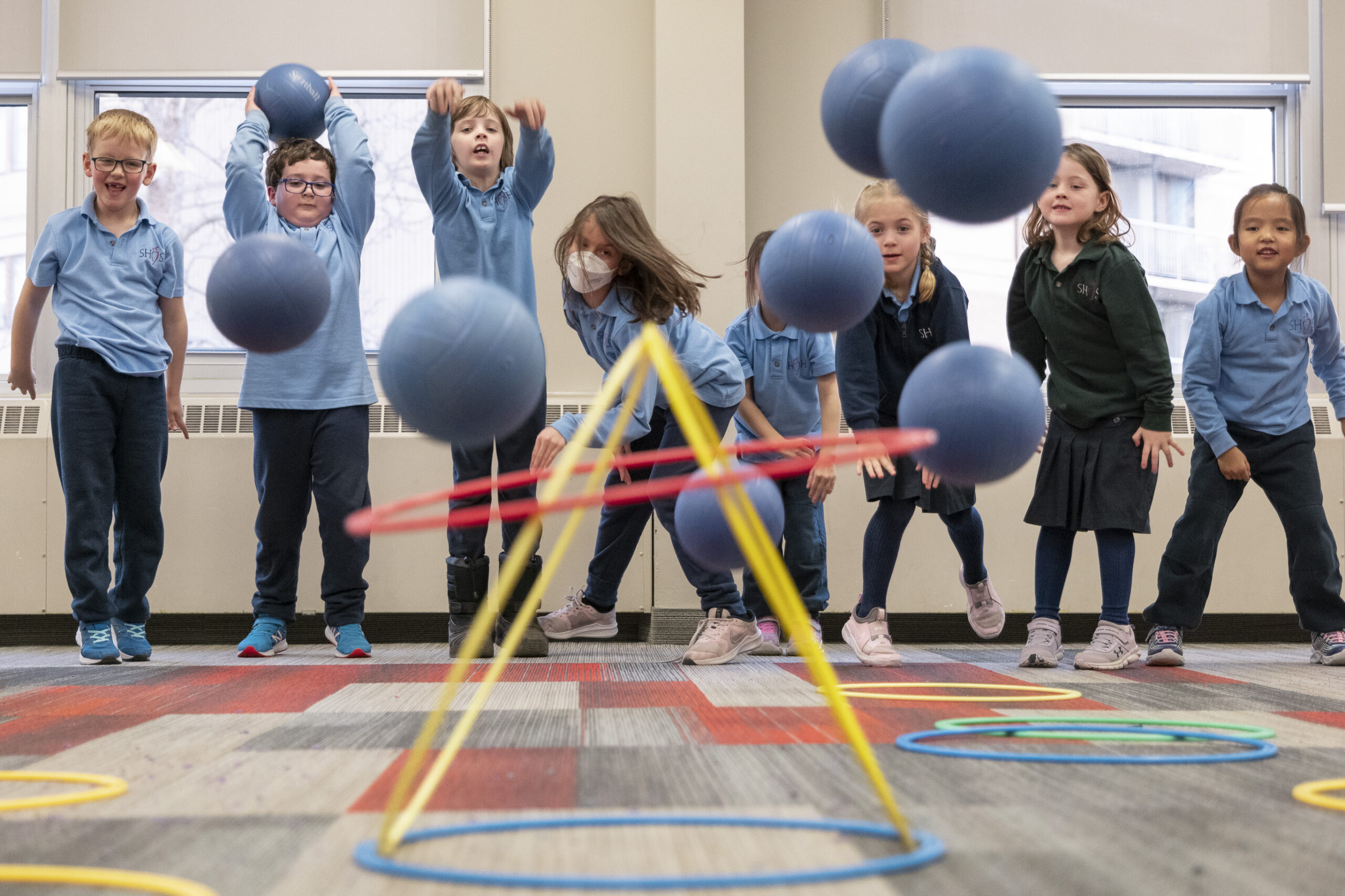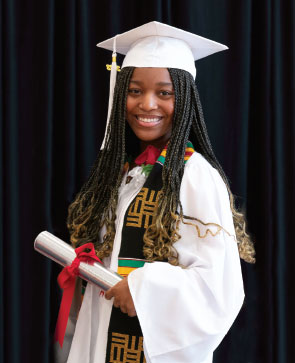By Jared Griffiths
Watching our recent Elementary School Musical production of Matilda JR. this month, I was struck not just by the incredible show of talent, but by how far the more than 70 students had come since the day they auditioned. And by that, I don’t mean they now knew all the words to the songs, or they were smoother and faster with their transitions, what I mean is they were now more confident, more patient, better listeners, and more collaborative.
Having grown up as a competitive athlete I knew the joy of playing sports. But, I didn’t always think about the value of sportsmanship, teamwork, or patience as a child. That came much later in life. But, I think my parents knew, and it’s why they supported and encouraged me.
As an Elementary School Principal, I am a staunch advocate of extracurricular activities and endorse having so many of them in our program, whether it’s coding or basketball, karate or robotics, music or performing arts. As a school, we know the “extra” life lessons of extracurriculars will contribute to more adaptable, well-rounded, successful, and happier young people who will transfer these lessons to their adulthood.
Lessons like commitment, which teaches students that once you join something to fully commit to it means being your best self in that endeavour. And your best self contributes to a better team, cast, band, or group making the whole so much bigger than the individual. And commitment is a form of responsibility, an integral part of growing up.
Like coping skills. Disappointment comes fast and furious at a young age, whether it’s losing a big game, not getting a role you want, or missing the shot. But brushing yourself off, coping with the emotion, and moving on are invaluable skills. I think of an athlete I coached last summer who was devastated by a loss in a national championship semi-final. With some time and support, she understood that while she could still be disappointed, she could funnel that emotion to rise to the next challenge, which in this instance was the bronze medal game. She scored the winning goal. That memory, more than the earlier loss, is what will stay with her for the rest of her life.
Communication is another important benefit of extracurricular activities. While it is taught explicitly in our school, it is practised and enhanced during extracurricular programs as individuals learn to actively listen, find their voice, influence a decision, and share their feelings or experience. For some young people, this is hard, and it takes time. But I’ve often seen students come out of their shells, assert themselves, and engage in productive two-way communication after spending time with classmates and friends in programs where they feel safe, supported, and connected.
Patience is another outcome yet one of the hardest skills to learn, especially in today’s society where instant gratification is the norm. During the Musical preparation, for example, there are long periods of time when students may not be on stage but still need to attentively listen to the rehearsal to ensure they are ready when it’s their turn to perform. On a sports team, you may have to spend time on the bench before it’s your turn to get in the game, and you need to be ready when you’re called upon. Track and Field is a great example; during a meet, athletes may wait for hours between events, but that time is almost more important than the event itself. Students must focus on preparing themselves both physically and mentally for the upcoming event and that’s not easy when you just want to get out there and compete.
Of course, teamwork is not just one of the greatest rewards I can think of, it’s also one of life’s most important skills. And I don’t mean just team sports. Robotics competes as a team, our Musical cast and crew is one big team, and groups of musicians are a team of players. You get the idea. Knowing how to collaborate, how you can put your strengths to work on behalf of the team, and how to encourage your teammates in good and bad times is invaluable to successfully navigating adulthood. In fact, as I think about it, it’s essentially what I do day in and day out with my staff.
And then there are the friendships. Who among us has not found a friend through a shared interest? It is most rewarding for me as an adult to see young people connect over a shared activity, one in which they can share their passion, their skill, their energy, and their enthusiasm. And it’s particularly heartening to see this happen with the shyest and most reserved of our students. From these activities have emerged friendships that last throughout school and most often into adulthood. And isn’t a good friend one of life’s greatest joys?
I spend a lot of time at Track and Field meets, in classrooms where clubs are happening, in the gym helping with extracurricular activities, in the Theatre watching rehearsals, or in the Music Room listening to performers. And frankly, there are fewer places I’d rather be. For our children’s sake, I hope it’s where they are too.


